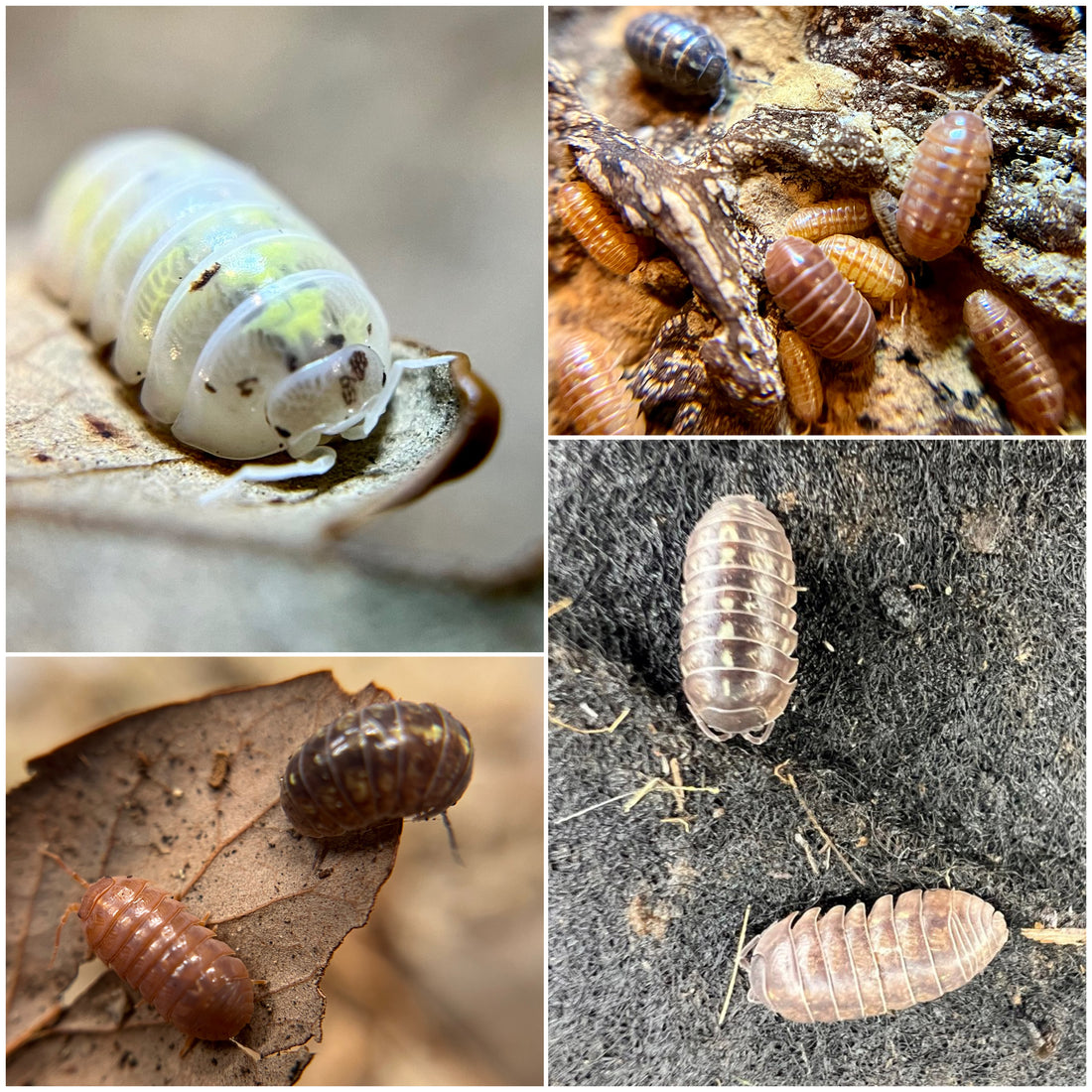Armadillidium vulgare, commonly known by various names such as the common pill-bug, potato bug, common pill woodlouse, roly-poly, slater, doodle bug, or carpenter, is a prevalent species of woodlouse native to Europe. This versatile isopod has successfully adapted to a range of environments and is now found in many parts of the world, making it one of the most recognizable and studied terrestrial isopod species.
One of the most distinctive features of Armadillidium vulgare is its ability to roll into a ball when threatened, a defensive behavior that has earned it the nickname "roly-poly." This unique ability to curl up provides protection from predators by presenting a hard, armored exterior, making it difficult for potential threats to access the softer tissues inside. This behavior is not only fascinating to observe but also highlights the species' evolutionary adaptations for survival.
Armadillidium vulgare is typically characterized by its oval-shaped body, which can vary in color from gray to brown, often with lighter markings. They can grow to about 1 to 1.5 centimeters in length. Their exoskeleton is segmented, providing flexibility and mobility as they navigate through their habitats, which include gardens, forests, and other moist environments.
In terms of habitat, these pill-bugs prefer damp, sheltered areas where they can find ample food sources and protection from desiccation. They are commonly found under rocks, logs, and leaf litter, where they feed on decomposing organic matter, such as decaying leaves, wood, and other plant materials. By breaking down this organic material, they play an essential role in nutrient cycling, contributing to soil health and the overall ecosystem.
As one of the most extensively studied terrestrial isopod species, Armadillidium vulgare has been the subject of numerous scientific investigations. Researchers have explored various aspects of its biology, ecology, and behavior, including its reproductive strategies, population dynamics, and interactions with other organisms. This extensive research has provided valuable insights into the role of isopods in terrestrial ecosystems and their importance as decomposers.
In addition to their ecological significance, common pill-bugs are often kept as pets or used in educational settings. Their relatively simple care requirements and interesting behaviors make them appealing to both children and adults alike. Observing their habits and interactions can offer a hands-on learning experience about the importance of biodiversity and ecological balance.
Overall, Armadillidium vulgare is not only an intriguing and adaptable species but also serves as a vital component of the ecosystems it inhabits, showcasing the interconnectedness of life within terrestrial environments.

